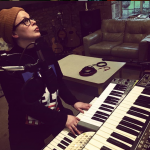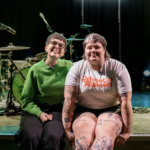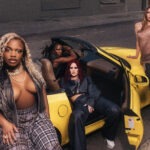It was the mid-90s when music became a career option for me due to receiving interest from a music publisher. I was very young and hadn’t dealt with my sexuality. I was on the cusp of realizing that how I felt was different to the norm presented to me by the heteronormative mainstream, yet I kept pushing my feelings down. I remember attempting to watch the now cult indie classic “Go Fish” but only managed the first 5 minutes. It was too close to the part of myself that I was denying and I wasn’t ready.
Baring in mind that section 28 was introduced in 1988 (a series of laws across Britain that prevented the “promotion of homosexuality”), the 90’s wasn’t an era where it felt safe to come out and with the exception of that ‘lesbian kiss’ on Brookside and ‘Go Fish’; as a young person, I personally couldn’t see any other queer female visibility on tv and film. In music, I knew KD Lang was gay and was a huge fan of Tracy Chapman who never spoke about her personal life in interviews but I hadn’t yet discovered artists such as Ani DiFranco and Tegan & Sara. I was too deep in my shame to delve further.
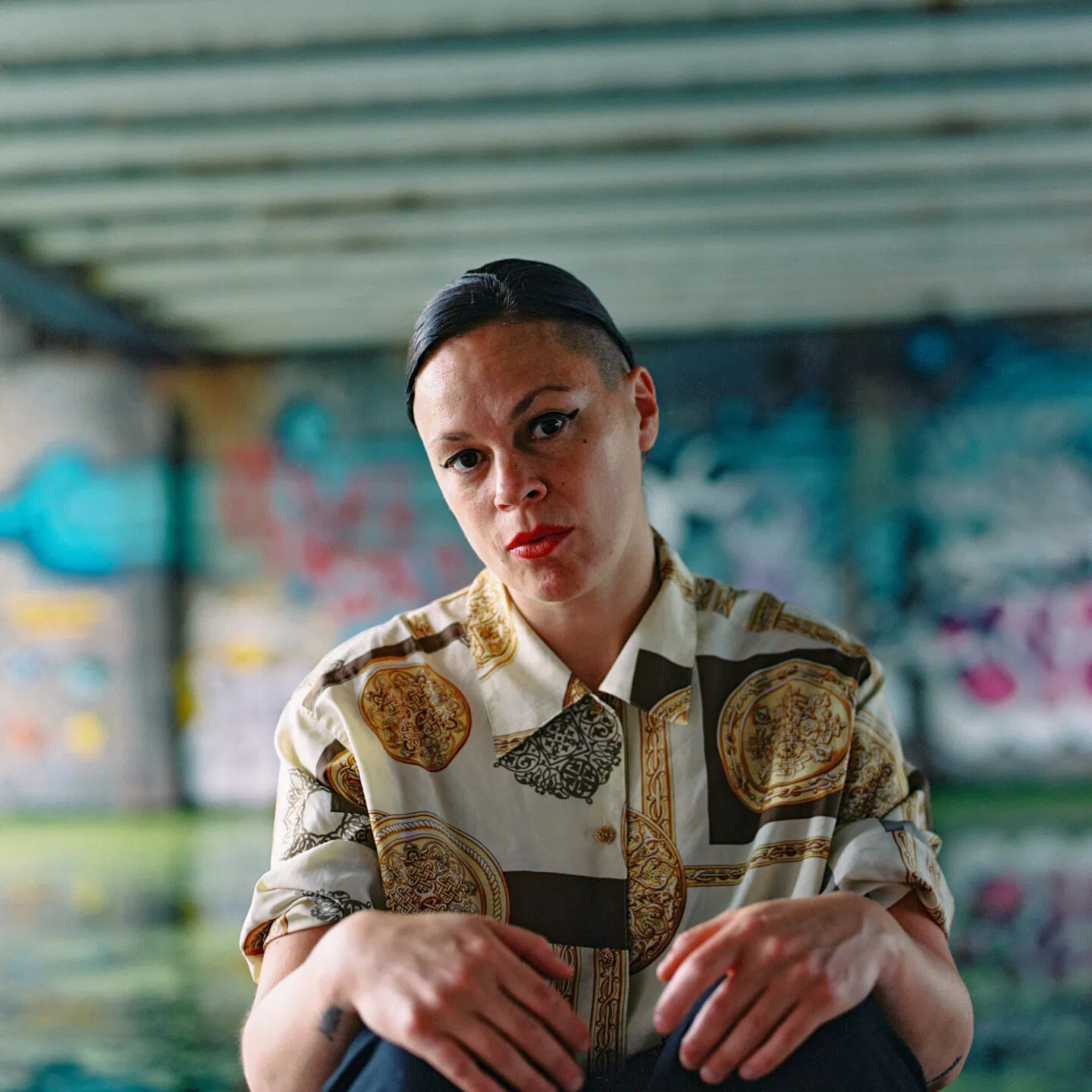
When I was signed to a music management company in my early 20’s I still hadn’t come out or taken responsibility for my sexuality. I recollect being in the recording studio with some of the team who were attempting to help me bring out more vocal emotion. I heard feedback along the lines of… “Focus on the hurt and feelings you had for him”. I was screaming inside, “I wrote this about a woman not a man.” I stayed silent and nodded.
After reaching a creative burnout I finally came out for the first time and took a sabbatical from music in order to start living and breathing my queerness. I was making up for all those crucial adolescent years I had lost and thanks to my chosen family began exploring the queer scene for women in London. I felt alive, I felt free. Everything I’d been searching for in my music was here.
Become a Nonchalant VIP for ad free browsing.

Recognition, belonging and connection. I started to gig in Soho at a plethora of venues including the now momentous Candy Bar. Live performances would often take place in the basement (lesbian drama occurred on all levels!). Although being a queer woman isn’t my whole identity, it’s an important part of who I am and has led me to many phenomenal opportunities and experiences that I would never have dreamed of. A small selection includes live music performances at Brighton, Manchester and London Pride, sharing my music in male prisons along with LGBTQ+ Q&A’s and working with Girls Rock London who hold and facilitate space for girls, trans and non-binary youth (and adults). I even once had a fan reach out to me on my socials to say they’d come out to a parent.
The music industry has come a long way and we now have a lot of queer initiatives yet I still feel like an outsider. I’m proud of what I’ve achieved but I’ve never felt that I fit in or that I’ve been fully accepted and recognised as an artist. I was interested to hear how other LBTQ women particularly around my age group have found their groove in the music industry.
Article continues below.
I met Joanne Croxford and became friends through our work with Girls Rock London. Joanne is an incredible human and was on her way to the USA to tour and manage Duran Duran when providing me some insight into her experiences in the music industry. “Existing in a space where you are not there to solely satisfy the cis male gaze has its own set of challenges. Especially where roadie culture is concerned. For the longest time, it has been about women being groupies or inferior to men in their physical/technical abilities and therefore overlooked or discounted as less than. I have been in a position where I have not been considered for work based on the fact that I am so openly queer so the men in power have deemed me as less than favourable because I make such a point of visibly not fancying them.”
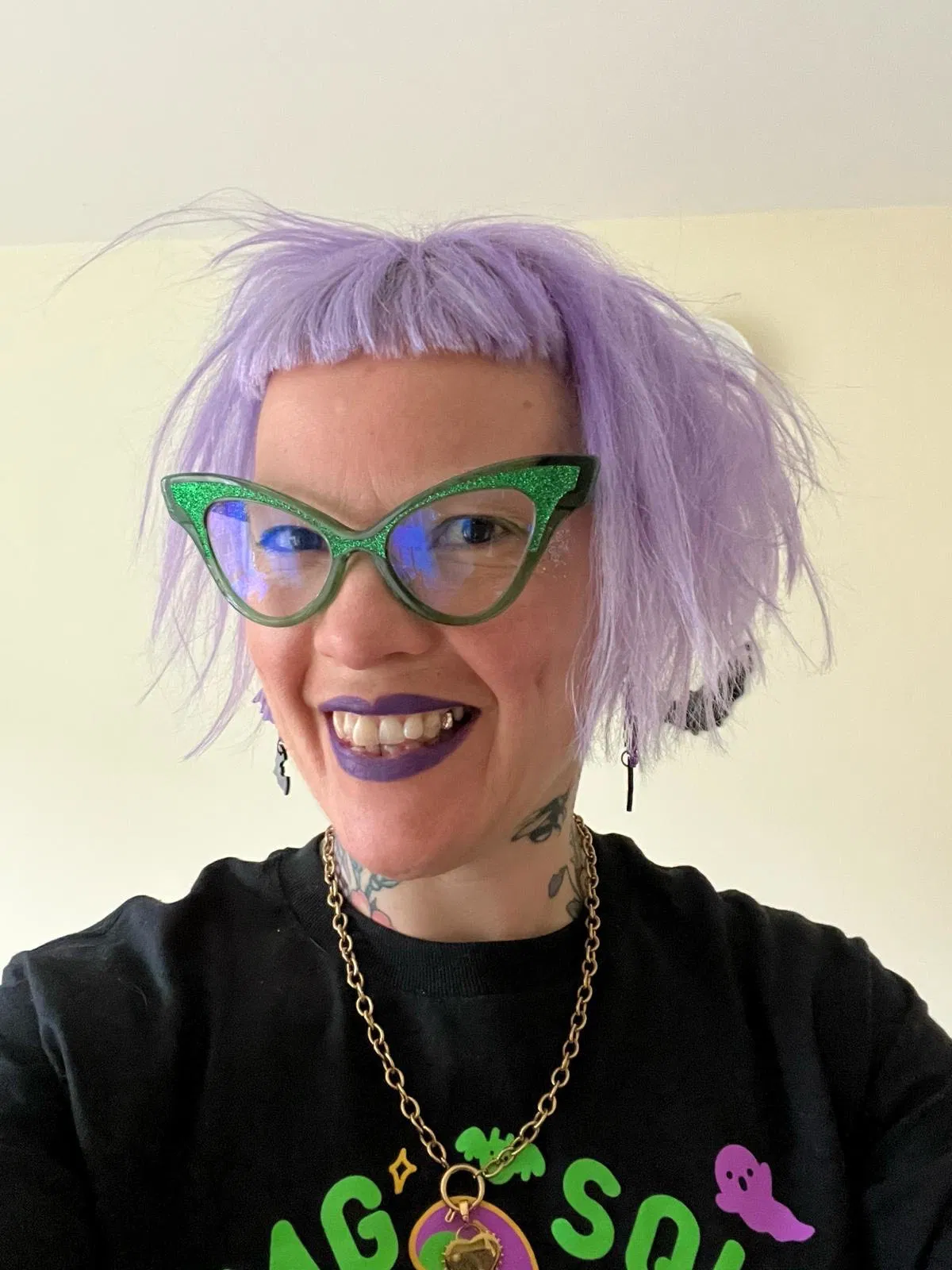
And what about feeling like an outsider or is that just me? Joanne says, “I have absolutely felt like an outsider because of my sexuality. Especially when the majority of my roadie colleagues have lived a very heteronormative life and nurtured that within the road-life atmosphere. The level of misogyny that exists is shocking at best (at least 20 years behind other areas in the music industry).”
I also spoke with the inspirational Saskhia Mendendez who will be releasing the Trans Charter through LiVE – Live Music Industry, Venues & Entertainment. This will be an opportunity for music businesses, organisations and trade bodies to sign up and help protect and promote the rights of Trans and Non Binary creatives in the UK music industry. Saskhia started music at a young age and was born to two deaf parents which gave her wondrous ways to communicate with others. She is an equality and diversity ambassador amongst many other strings to her music industry bow. When I asked about the challenges LBTQ women in music face and what can be done Saskhia said, “The music industry is an open place to be, full of difference and diversity however, women have a much harder time than our male counterparts which include a lack of opportunities, discrimination, sexual harassment and misogyny. I do see more being done to support LBTQ women than in the past, but I still don’t think enough people are feeling that change happening just yet.”
As someone who has rarely been financially backed by the music industry (I’ve alternatively turned to crowd funders in order to record and release new music), I was interested to hear Saskhia talk about the scarceness of financial backing. She says, “There is a serious lack of investment and funding for LBTQ female communities to tap into, and this is diminished even further for business professionals as most funds are for artists only. The infrastructure needs to be able to accommodate for this, to ensure equity and inclusion. I would like to see more role models for LBTQ artists and for funding bodies to be more aware of our financial struggles.”
I also asked Saskhia about Transmisogyny and was sad to hear that in the past she has not been given opportunities or funding and has not always been welcomed into women’s spaces. Although she said this has not been her overall experience and that she can see change happening, we really need to do better and continue to take the necessary steps to be inclusive and educated.
Joanne told me that so many artists are now insisting that their crew be a constellation of a certain kind of people which is evidence that we are making headway. She said, “It’s an exciting time and as usual, we queers backstage are at the front making meaningful change happen! Once the artists realise that they have all the power to hire, the industry will totally take notice and more minorities will be given the opportunity to learn and take over the jobs of those who quite honestly, are holding us back from progress!”
I conclude at least for now that advancements are being made but we are not on the home stretch yet. There are no doubt hundreds of other stories and experiences from LBTQ women working in music that, if heard, can help the music industry continue to make solid changes that create a genuine inclusive orbit. I look back at when I represented The F-List on a Women in Music Panel at the London College of Contemporary Music taking in the other panelists which included Women In CTRL founder Nadia Khan. We were all on each other’s side, being heard, speaking our truth and connecting in a deep and beautiful way. I instantaneously felt that if the music industry was more like this, I’d feel like I belong.
Thanks for sharing your story with us MIRI. If you’d like to check out more from MIRI, head to her website. You can also read more from our Your Stories section.

